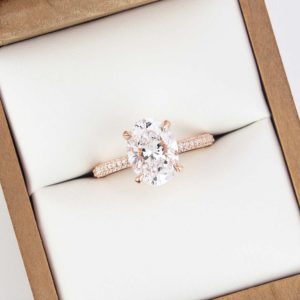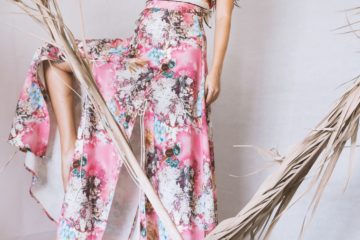Are you or someone you know getting married, or just wondering how to keep a huge event like a wedding sustainable, and eco-friendly while remaining within an affordable budget? Weddings can be one of the most special days in a couple’s relationship and the day takes a lot of time, planning and organisation.
Whether planning a wedding is your perfect dream or worst nightmare, when it comes to sustainability, any ‘once-in-a-lifetime event’ requires a large amount of resources, and creates plenty of waste and ‘throw-away’ items that will not be used again. By being creative in organising the celebrations, it is possible to significantly cut down on the environmental impact with a few simple changes.
As costly to the environment as they are to your wallet, a wedding doesn’t have to be wasteful and by making some small alterations you can incorporate sustainability without sacrificing elegance.
We’ve created the Ultimate Guide to a Sustainable Wedding to help you achieve the more sustainable, eco-friendly wedding, that’s just right for you and your future spouse. Here’s how to incorporate sustainability into your wedding, without sacrificing elegance.
1. Let’s Elope!
This somewhat tongue-in-cheek suggestion, eloping, is not for everyone. However, if you did take our advice and run-off to the registry office or a remote location for two to ten people, you would definitely cut down on the environmental impact of your ceremony.
In some cases, depending on the size of your original guestlist, you could reduce the need for single-use items like invitations, bonbonniere and centrepieces etc by 900%*! That’s not to mention food, travel and you’d likely save on your budget too. Food for thought..
(*100 is a 900% increase of 10 where one item per person would be needed).
2. Travel
Considering how far to travel, or not to travel has an eco-footprint of its own. Keeping your location close or considering transport options versus guests needing to take a car each would be a high emission-saving part of your sustainable wedding plan.
You may consider hiring a coach to shuttle guests from a closer-by location to your venue, to not only save on omissions but can end up being a fun part of the wedding for invitees too.
3. Venue
After location, you’ll likely be considering the impact of hiring your own venue (or using one you already have access to) compared with an event venue designed to hold wedding receptions.
If your desired venue reuses a most of the furnishings, marquees, furniture and dinnerware for example, this could make it an excellent choice. The biggest advantage would be not needing to purchase items like glassware in quantities that you won’t need again in the future.
On the other hand, some venues (and organizers) can be restrictive about which suppliers you can use and the types of products you can bring in to one of their events, possibly lowering your eco-options.
Hiring or using your own venue gives greater flexibility for innovation and sourcing more environmentally responsible suppliers. Hiring essential items like glassware or furnishings is a great option which negates the need to rehome or resell them after the celebrations are over.
4. The Dress (or Suit)
We must address; the dress. According to resale site ThredUp’s 2020 report, outfits bought for weddings were the top occasion where clothing was only worn once (somewhere in the vicinity of 45 million outfits!).
Giving a dress (or suit) a second life can reduce its impact by a whopping 79%. Borrowing, buying second-hand or renting are the best ways to save on the environmentally-damaging effects of your outfit. Rehoming or reusing your garments after the event is another important way to reduce your impact, and prevent waste even further.
Guest’s outfits; don’t forget to encourage your guests to re-wear or hire for your wedding, you could even incorporate it into event’s your dress code! ThredUp says if everyone wore a thrifted outfit to a wedding next year, it would save over 725 million kilograms (1.6B lbs) of CO2e (carbon dioxide equivalent), which is like taking 56 million vehicles off the road for a day.
Choosing a preloved wedding dress can give you just as many options as buying new but at a fraction of the cost, so you still get that perfect dress while staying within budget. These dresses are beautiful, with minimal alterations needed, lowering costs even more. Preloved wedding dresses also reduce waste since they won’t spend years tucked away in a closet, forgotten once the wedding is over.
Aside from the usual places to buy preloved outfits, websites like Still White are dedicated to resale and rehoming second-hand wedding dresses, some of which barely left the garment bag for a day. You can save enormously on retail, let alone the eco-repercussions.

Ethically-sourced Diamond Ring, Image Courtesy of Brilliant Earth
5. The Ring
For many, the wedding ring is the most essential symbol of marriage, and certainly one of the only things you’ll carry with you daily, aside from your memories.
To be considered sustainable, jewellery, like fashion, requires supply-chain transparency, responsible sourcing and the use of sustainable materials. Unfortunately the jewellery industry to-date has been fraught with adversity like unethical sourcing and labour practices by way of unfair wages and unsafe working conditions. Additional to the sustainability concerns rife in the fashion industry like overconsumption and environmental impact, jewellery has the additional sustainability concern of mining.
The more environmentally-sound option of a preloved ring provides romanticism, along with recapturing the beauty of styles gone by.
Choosing to create a bespoke ring with the right jeweller (here’s a suggestion) means increased flexibility to make requests such as using recycled metals and ethically-sourced diamonds or gems. Plus you’ll end up with a more personalised, unique and made-to-order adornment to last a lifetime.
Brilliant Earth are jewellery-makers offering an ‘off-the-shelf’ purchasing option, that use materials like “conflict-free” diamonds and gemstones, lab-grown diamonds, and recycled gold. The company pride themselves in their ability to provide ethical and environmentally responsible origins for their jewellery components, which creates greater peace of mind (and a more joyful beginning) for buyers. A donation of 5% net profits of each purchase goes towards helping mining communities, making Brilliant Earth a positive option towards a safer, more sustainable jewellery industry.
6. Table Decorations
One of the most wasteful areas of wedding preparations is the decorations. Once the wedding day is done, most of the table settings and other lovely adornments will end up in landfill. Thankfully, there are ways to limit waste from your wedding.
Instead of flower centerpieces, choose potted plants that your guests can take home when the event is over. Reduce throw-away items, like dinnerware, cups, and tablecloths. Many venues offer all of these items in the rental agreement in a reusable state. As well as reducing waste, this makes planning easier since everything you need is already at the venue at your disposal.
Other environmentally safe options include metal or paper straws, and outdoor settings that use nature’s beauty for the décor.
7. Invitations
Aaah, invites, cards, wrapping paper; all the beautiful but unnecessary items that cause us to walk the fine line between our eco-values and societal politeness.
Using a gift registry as suggested below means wrapping paper can be a thing of the past.
The most eco-friendly but not always practical choice is to go entirely paper-free. These days it is relatively simple to send an e-vite, facebook event or even create a website if that suits your taste and abilities, although there are always those unable to access this technology, and many more who will want to keep your physical wedding invitation as a keepsake.
Invitations made of recycled materials, like handmade paper, fabric, or wood are possible eco-options. A thoughtful idea is using paper made from recycled materials that also contain flower seeds, which can be composted or grown in a pot later, sharing the special memories even further.
8. Gifts and Wrapping Paper
If your guests choose to purchase a gift , you can request that they use a pre-selected gift registry which further reduces waste from dealing with unwanted items. Most stores would welcome your interest so don’t be afraid to negotiate or go outside the usual vendor options.
You can collect all of your items together at once on a predetermined time and date. This will mean no wrapping paper, less travel, and bonus points for ticking off some great (possibly eco-friendly) gifts that you will really love and need.
If you’re a true minimalist you may have a cause or charity you prefer your loved ones donate to, or a wishing well towards your future home or holiday are dreams most guests are happy to contribute to in place of a traditional gift.
If you do receive a gift that you can’t use, donate it to a charity in need, ensuring that they can be used by somebody else.
9. Cards and Well-wishes
It’s your wedding day and everyone can’t wait to wish you well on your journey together in their own special words.
Rather than collecting a bunch of cards (you definitely won’t know what to do with later), find a beautiful journal and request that your invitees record their wishes and memories there on the day instead.
In addition to a journal there are so many amazing ways that people choose to collect wishes from their guests on the special day. Too many to list here, so be sure to research some options and find the one that works best for you both.
Don’t forget to let your guests know in advance that cards are not the preferred option (unless it’s really important to them, or you).
10. Bonbonniere
Guest gifts may be a thing of the past in your circle or they may be absolutely expected. Confectionary in glass jars, custom labelled champagne or keepsakes with the couple’s or guests’ names on them, the list of options for your wedding gift (or bonbonniere) is endless.
Some ideas for reducing eco-impact include a donation on your guests’ behalf, something 100% reusable or biodegradable but at a minimum it must be something your invitees can use more than once.
We love the idea of presents which increase in eco-friendly impact like a reusable metal straw set, something practical like flower or vegetable seeds, or something edible for the next day (or later that night).
With options galore, we’re certain you’ll find the one that’s right for you. If all else fails, you can’t go wrong with a locally, handmade soy candle.
11. Confetti
Throwing rice was one of the most recognised wedding traditions, until the harm to birds and wildlife became more well-known.
By no means a necessity, many couples are now opting to forgo the tradition in its entirety. However, if it is on the list of non-negotiables to make your dream wedding a reality, there are still a couple more options you could try.
Paper confetti, while technically biodegradable, still creates a lasting mess and is nearly impossible to clean up.
Natural materials are the better option with some more eco-friendly ideas being fresh or dried flower petals, or native grown leaves cut into shapes, in place of confetti. A safer choice for the environment, leaves and flowers also have the added benefit of rustic charm natural fragrance for you and your guests to enjoy.
You could place your natural confetti in open baskets around the ceremony or have someone hand them out in reusable containers for the guests to use when the time is right (they’re great for photos). Just be sure to have a practice throw of whatever natural material you choose before the big day to ensure it doesn’t stain or damage your clothing, and it is actually possible to throw and produce the desired effect.
Above all, ensuring your values are incorporated as much as possible will increase the joy of the day, and inspire others to join in these rituals as well.
Choosing the eco-friendly options that suit your wedding will allow you to enjoy your special moments, with less waste and stress about the impact of your nuptials.
NB: We understand that cultural values, budgets and accessibility vary greatly when it comes to this important day, therefore not all tips may apply. Please adjust accordingly.
Featured Image: Mariana Hardwick dress via StillWhite.com.au


